-
 Bitcoin
Bitcoin $88,629.0112
1.53% -
 Ethereum
Ethereum $1,633.3416
0.24% -
 Tether USDt
Tether USDt $1.0000
0.01% -
 XRP
XRP $2.0979
-1.08% -
 BNB
BNB $605.5535
0.62% -
 Solana
Solana $140.2764
0.66% -
 USDC
USDC $1.0000
0.01% -
 Dogecoin
Dogecoin $0.1643
1.41% -
 TRON
TRON $0.2438
0.47% -
 Cardano
Cardano $0.6391
-0.43% -
 Chainlink
Chainlink $13.4401
-0.21% -
 Avalanche
Avalanche $20.3874
-0.96% -
 UNUS SED LEO
UNUS SED LEO $8.8373
-2.11% -
 Stellar
Stellar $0.2496
-3.26% -
 Sui
Sui $2.3313
3.08% -
 Shiba Inu
Shiba Inu $0.0...01260
-0.18% -
 Hedera
Hedera $0.1732
1.55% -
 Toncoin
Toncoin $2.9117
-3.34% -
 Bitcoin Cash
Bitcoin Cash $346.5808
1.81% -
 Hyperliquid
Hyperliquid $18.4964
3.15% -
 Litecoin
Litecoin $79.8162
-0.77% -
 Polkadot
Polkadot $3.7801
-3.27% -
 Dai
Dai $1.0000
0.00% -
 Bitget Token
Bitget Token $4.4558
-0.32% -
 Ethena USDe
Ethena USDe $0.9992
0.01% -
 Pi
Pi $0.6369
0.62% -
 Monero
Monero $217.7312
1.28% -
 Pepe
Pepe $0.0...08147
2.99% -
 Uniswap
Uniswap $5.4346
0.09% -
 Aptos
Aptos $4.9660
-4.00%
How to use anonymous coins to trade?
To enhance anonymity, consider hidden wallets with decoy addresses and utilize decentralized, privacy-centric exchanges like THORChain, maintaining operational security through encryption and mixing techniques.
Feb 21, 2025 at 05:48 pm
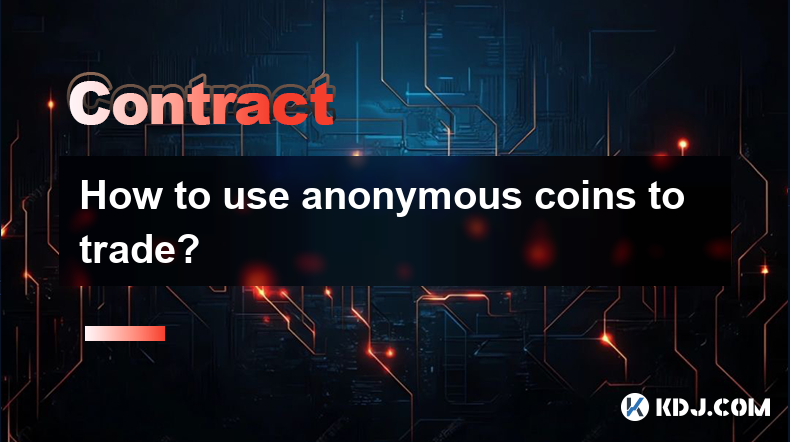
Key Points:
- Choosing an Anonymous Cryptocurrency: Consider factors such as privacy features, transaction anonymity, and fungibility.
- Creating a Wallet for Anonymous Coins: Select a non-custodial wallet that supports privacy-oriented coins.
- Exchanging Fiat to Cryptocurrency: Identify reputable exchanges or decentralized platforms where anonymous coins can be purchased or swapped.
- Trading Anonymous Coins Safely: Use decentralized exchanges (DEXs) or peer-to-peer (P2P) marketplaces that prioritize privacy and security.
- Protecting Your Privacy While Trading: Implement proper operational security (OpSec) measures, such as using VPNs, mixers, and disposable emails.
- Other Considerations: Be aware of legal implications, tax obligations, and the importance of staying informed about privacy updates.
Choosing an Anonymous Cryptocurrency
Anonymity in cryptocurrencies refers to the ability to conduct transactions without disclosing sensitive personal information. When selecting an anonymous coin, consider the following factors:
- Privacy Features: Examine the coin's privacy-enhancing technologies, such as zero-knowledge proofs, anonymity sets, and shielded transactions.
- Transaction Anonymity: Assess the level of anonymity provided during transactions, including protection against IP address logging, transaction linking, and pattern analysis.
- Fungibility: Ensure that the coin maintains fungibility, meaning that all units have equal value and cannot be differentiated from each other, preserving privacy.
Creating a Wallet for Anonymous Coins
Non-custodial wallets allow users to retain control over their private keys, enhancing security and privacy. For anonymous coins, consider the following wallet features:
- Privacy-Focused Protocols: Choose wallets that support coins with strong privacy features, such as shielded addresses or built-in mixers.
- Self-Custody: Select wallets that do not require third-party involvement and allow for complete control over the private keys.
- Multi-Signature Capabilities: Consider wallets with multi-signature support, which requires multiple keys to authorize transactions, increasing security.
Exchanging Fiat to Cryptocurrency
Converting fiat currency to anonymous coins requires finding reputable platforms that facilitate such transactions:
- Exchanges: Identify exchanges that support anonymous coins, such as Binance, KuCoin, or OKX. Verify their reputation and security measures.
- Decentralized Exchanges (DEXs): DEXs allow for direct peer-to-peer trading of cryptocurrencies, often without requiring KYC procedures. Explore options such as Uniswap, SushiSwap, or PancakeSwap.
- Peer-to-Peer Marketplaces: Consider platforms like LocalBitcoins or Bisq, which connect buyers and sellers directly, enabling private transactions.
Trading Anonymous Coins Safely
For secure anonymous coin trading:
- Decentralized Exchanges (DEXs): Utilize DEXs that prioritize privacy, such as Uniswap with its privacy feature or THORChain with its atomic swaps.
- Peer-to-Peer (P2P) Marketplaces: Engage in private transactions through P2P marketplaces, ensuring secure escrow services and dispute resolution mechanisms.
- Reputation and Feedback: Before trading with counterparties, examine their reputation and feedback ratings on the platform.
Protecting Your Privacy While Trading
Maintaining privacy while trading anonymous coins requires the implementation of proper operational security (OpSec) measures:
- Virtual Private Networks (VPNs): Use VPNs to encrypt internet traffic, hiding your IP address and location.
- Mixers: Employ mixers or tumblers to break the link between transaction inputs and outputs, increasing anonymity.
- Disposable Emails: Create and use disposable email addresses to avoid revealing your primary email account for privacy reasons.
Other Considerations
Before engaging in anonymous coin trading:
- Legal Implications: Familiarize yourself with local laws and regulations regarding the use of anonymous coins to avoid legal risks.
- Tax Obligations: Understand tax implications related to anonymous coin transactions and adhere to reporting requirements.
- Stay Informed: Keep abreast of industry news and privacy updates to adapt to evolving regulations and privacy protocols.
FAQs for Anonymous Coin Trading
- Q: Can I trade anonymous coins on centralized exchanges like Coinbase?
- A: While some centralized exchanges support privacy-oriented coins, they may still require KYC procedures, compromising anonymity.
- Q: How do I ensure the authenticity of anonymous coin transactions?
- A: Verify the transaction details on an independent blockchain explorer or consult a reputable source for authenticity confirmation.
- Q: What are the downsides of using anonymous coins?
- A: Potential downsides include lower liquidity, reduced accessibility on mainstream platforms, and increased difficulty in tracking funds for tax purposes.
- Q: Can anonymous coins be hacked or stolen?
- A: While anonymous coins have inherent privacy features, they are not immune to hacking or theft. Implement strong security measures to protect your funds.
- Q: What is the future of anonymous coin trading?
- A: The future of anonymous coin trading hinges on regulatory developments, technological advancements, and evolving privacy demands in the cryptocurrency landscape.
Disclaimer:info@kdj.com
The information provided is not trading advice. kdj.com does not assume any responsibility for any investments made based on the information provided in this article. Cryptocurrencies are highly volatile and it is highly recommended that you invest with caution after thorough research!
If you believe that the content used on this website infringes your copyright, please contact us immediately (info@kdj.com) and we will delete it promptly.
- From a Coin That Wasn't Supposed to Exist to Another That Got Melted Down
- 2025-04-22 21:00:12
- 3 Cryptos to Buy Now Before Parabolic Gains Hit
- 2025-04-22 21:00:12
- Coinbase Derivatives launches XRP-Future contracts, approved by the American Commodity Futures Trading Commission (CFTC)
- 2025-04-22 20:55:13
- Amp (AMP) price prediction: Can this token continue its bullish run?
- 2025-04-22 20:55:13
- Trump Establishes a Limited Bitcoin Strategic Reserve via Executive Order
- 2025-04-22 20:50:12
- Meme Coin Did Not Ruin This Cycle, But Instead Accelerated the Maturity of the Industry as a Market Catalyst
- 2025-04-22 20:50:12
Related knowledge
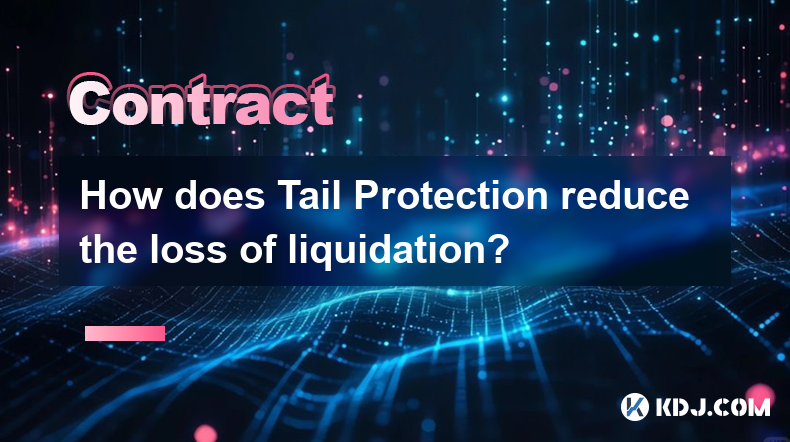
How does Tail Protection reduce the loss of liquidation?
Apr 11,2025 at 01:50am
Introduction to Tail Protection in CryptocurrencyTail Protection is a mechanism designed to mitigate the risks associated with liquidation in cryptocurrency trading. Liquidation occurs when a trader's position is forcibly closed by the exchange due to insufficient margin to cover potential losses. This often happens in leveraged trading, where traders b...
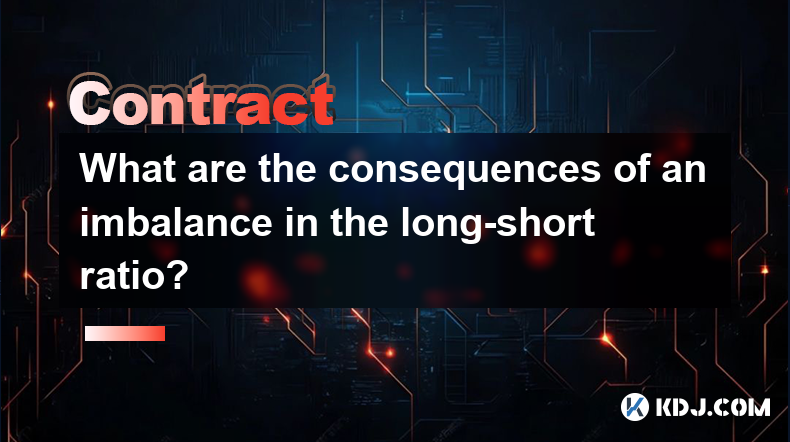
What are the consequences of an imbalance in the long-short ratio?
Apr 13,2025 at 02:50pm
The long-short ratio is a critical metric in the cryptocurrency trading world, reflecting the balance between bullish and bearish sentiments among traders. An imbalance in this ratio can have significant consequences on the market dynamics, affecting everything from price volatility to trading strategies. Understanding these consequences is essential fo...
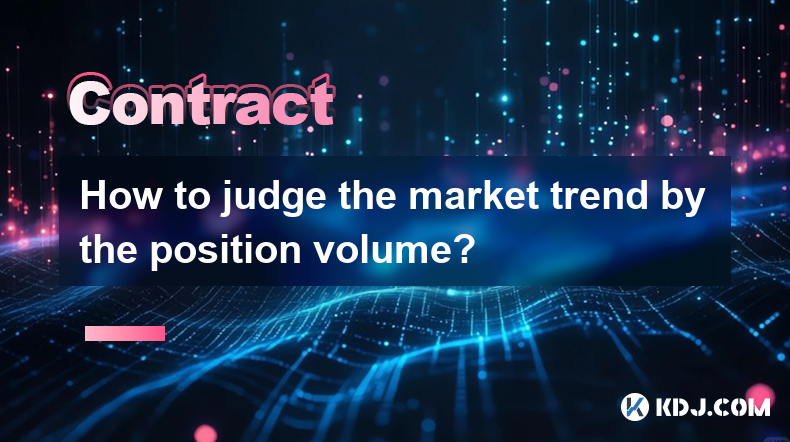
How to judge the market trend by the position volume?
Apr 11,2025 at 02:29pm
Understanding how to judge the market trend by position volume is crucial for any cryptocurrency trader. Position volume, which refers to the total number of open positions in a particular cryptocurrency, can provide valuable insights into market sentiment and potential price movements. By analyzing this data, traders can make more informed decisions ab...

Why does a perpetual contract have no expiration date?
Apr 09,2025 at 08:43pm
Perpetual contracts, also known as perpetual futures or perpetual swaps, are a type of derivative product that has gained significant popularity in the cryptocurrency market. Unlike traditional futures contracts, which have a fixed expiration date, perpetual contracts do not expire. This unique feature raises the question: why does a perpetual contract ...
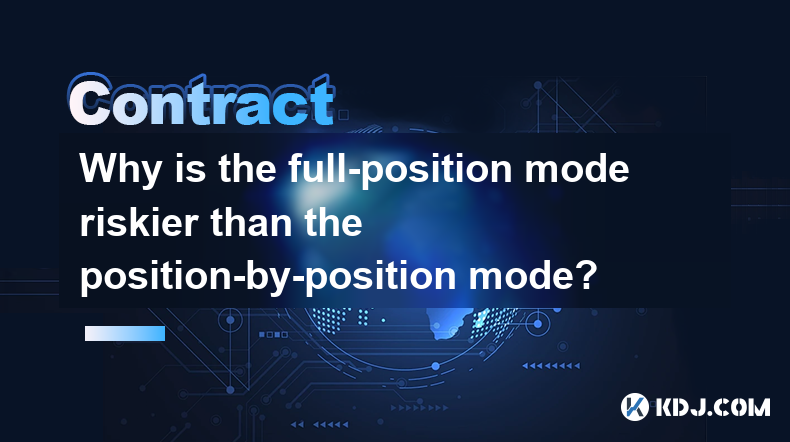
Why is the full-position mode riskier than the position-by-position mode?
Apr 13,2025 at 03:42pm
Why is the Full-Position Mode Riskier Than the Position-by-Position Mode? In the world of cryptocurrency trading, the choice between full-position mode and position-by-position mode can significantly impact the risk profile of a trader's portfolio. Understanding the differences between these two modes is crucial for making informed trading decisions. Th...
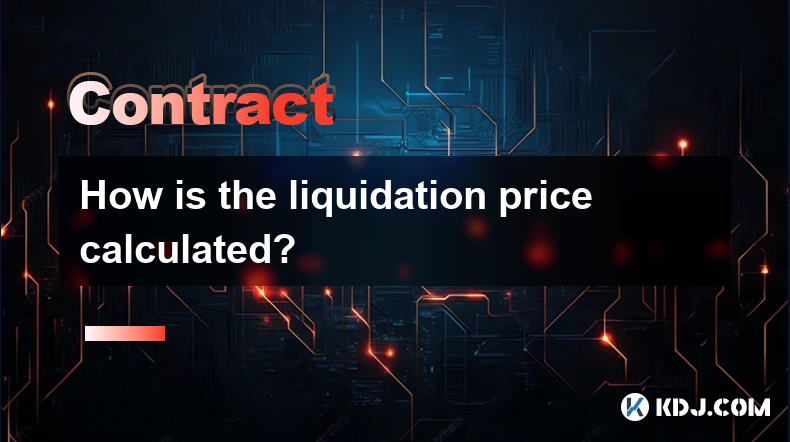
How is the liquidation price calculated?
Apr 12,2025 at 01:35am
Introduction to Liquidation PriceLiquidation price is a critical concept in the world of cryptocurrency trading, particularly when dealing with leveraged positions. Understanding how this price is calculated is essential for traders to manage their risk effectively. The liquidation price is the point at which a trader's position is forcibly closed by th...

How does Tail Protection reduce the loss of liquidation?
Apr 11,2025 at 01:50am
Introduction to Tail Protection in CryptocurrencyTail Protection is a mechanism designed to mitigate the risks associated with liquidation in cryptocurrency trading. Liquidation occurs when a trader's position is forcibly closed by the exchange due to insufficient margin to cover potential losses. This often happens in leveraged trading, where traders b...

What are the consequences of an imbalance in the long-short ratio?
Apr 13,2025 at 02:50pm
The long-short ratio is a critical metric in the cryptocurrency trading world, reflecting the balance between bullish and bearish sentiments among traders. An imbalance in this ratio can have significant consequences on the market dynamics, affecting everything from price volatility to trading strategies. Understanding these consequences is essential fo...

How to judge the market trend by the position volume?
Apr 11,2025 at 02:29pm
Understanding how to judge the market trend by position volume is crucial for any cryptocurrency trader. Position volume, which refers to the total number of open positions in a particular cryptocurrency, can provide valuable insights into market sentiment and potential price movements. By analyzing this data, traders can make more informed decisions ab...

Why does a perpetual contract have no expiration date?
Apr 09,2025 at 08:43pm
Perpetual contracts, also known as perpetual futures or perpetual swaps, are a type of derivative product that has gained significant popularity in the cryptocurrency market. Unlike traditional futures contracts, which have a fixed expiration date, perpetual contracts do not expire. This unique feature raises the question: why does a perpetual contract ...

Why is the full-position mode riskier than the position-by-position mode?
Apr 13,2025 at 03:42pm
Why is the Full-Position Mode Riskier Than the Position-by-Position Mode? In the world of cryptocurrency trading, the choice between full-position mode and position-by-position mode can significantly impact the risk profile of a trader's portfolio. Understanding the differences between these two modes is crucial for making informed trading decisions. Th...

How is the liquidation price calculated?
Apr 12,2025 at 01:35am
Introduction to Liquidation PriceLiquidation price is a critical concept in the world of cryptocurrency trading, particularly when dealing with leveraged positions. Understanding how this price is calculated is essential for traders to manage their risk effectively. The liquidation price is the point at which a trader's position is forcibly closed by th...
See all articles























































































